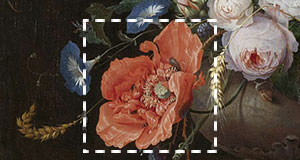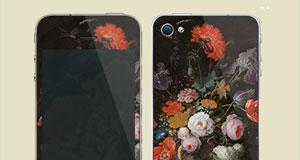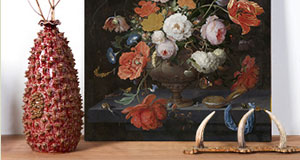Two Tables, Pieter Hendricksz. Schut, after Gerbrand van den Eeckhout, 1655
etching, h 253mm × w 198mm More details
Stands for tables carved with auricular motifs were made in many Dutch cities. They usually combine kwab features with naturalistic elements, like the garland of fruit to the left of the table at the top. The lower one is a tripod (only two legs are visible). In 1655, when these prints were published, auricular tables had been in fashion for some time.




